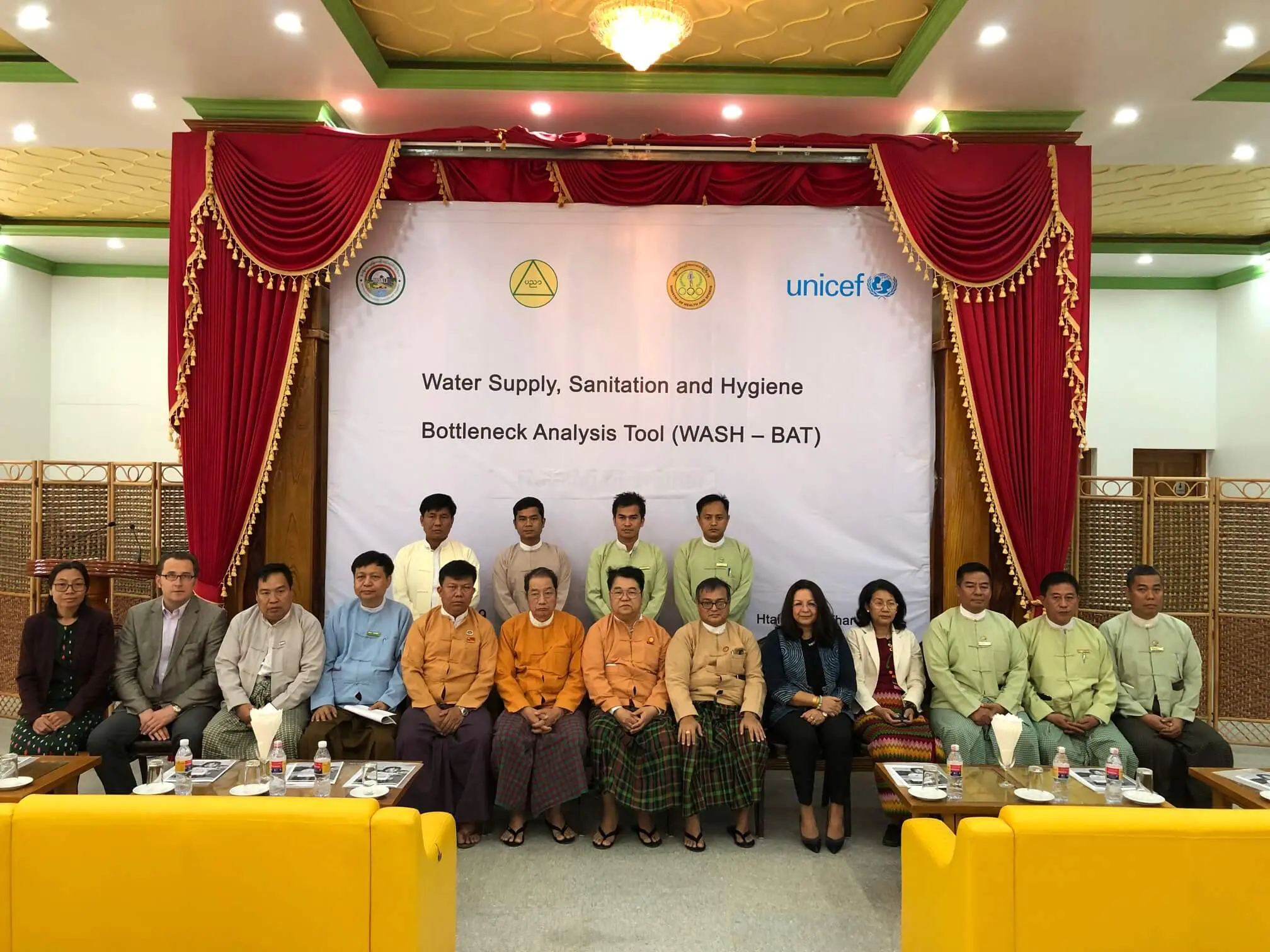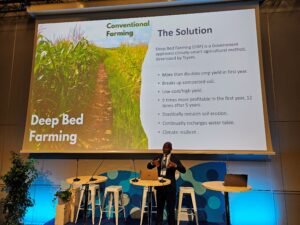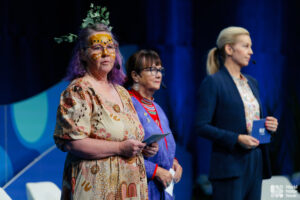WASH BAT trainings in Myanmar
To help Myanmar enhance its subnational water and sanitation sector, SIWI’s Water Governance Team was invited by UNICEF to moderate a multi-stakeholder Training of Trainers (ToT) and two regional workshops in Magway and Taunggyi. The events focused on the Water, Sanitation and Hygiene Bottleneck Analysis Tool (WASH BAT), developed by UNICEF with SIWI’s support.
The ToT’s main objective was to build national stakeholders’ capacity for future analyses in other regions or states. As for the two WASHBAT trainings carried in Magway and Taunggyi, they aimed at helping the national counterparts and UNICEF staff to better understand the building blocks of the WASH enabling environment. Participants were introduced to the WASHBAT, a tool designed to identify bottlenecks in the sector and subsequently develop a coherent action plan to remove them.
Over the three-day workshop participants mainly focused on what line water the ministry should undertake in cooperation with other stakeholders to develop an effective sector. In the context of WASH in regions with medium to low level of access to services, the following set of core WASH governance functions and definitions are suggested for analyzing and understanding the sector:
- Sector Policy and strategy
- Institutional Arrangements: Coordination, service delivery and regulation and accountability
- Sector Financing
- Planning, Monitoring and review: Planning, Monitoring, Evaluation and learning
- Capacity Development
Traditionally moderated, through flipcharts and colored papers, this workshop offered a set of participatory instruments developed to understand accountability situations and conceptualize a process of change within the respective contexts. This in turn enabled participants in Magway and Taunggyi to assess the status of accountability relations existing between different actors of the service delivery triangle (policy, operators, users) by reviewing functions, relations, practices and allocation of responsibilities in water, sanitation and schools. Their active participation produced visual graphics of the WASH sector illustrating its current dynamics.
As the overall aim of the WASHBAT is to enhance the WASH sector resources to achieve more sustainable and equitable outcomes, dialogues between stakeholders were facilitated in Magway and Taunggyi by offering practical proposals to overcome barriers and increase sector development. Each participant assessed the key enabling factors to be developed for the WASH sector, analyzed its criteria, identified bottlenecks that restrict sector progress, proposed sequenced activities to remove bottlenecks and their root causes and estimated resource requirements and costs of bottleneck removal. The Magway and Taunggyi Action Plans reflect well a clear link between the bottleneck removal and the broader development objectives.
In both regions, over 50 participants (very good gender balance and Youth prevailing) conducted WASHBAT in water supply, sanitation and in schools. The three subsectors, although conducted separately by different groups, illustrated similar regional challenges. As for the governance functions explored, they range from capacity development and institutional arrangements (mainly coordination and service delivery arrangements) to monitoring, evaluation, budgeting and financing. To a certain extent, decentralization and political leadership were reflected as well.
Considered as the weakest by participants, these functions then served for further analysis and bottleneck identification. While the regional Action Plans proposes a condensed version of around 15 prioritized activities, actual group work outlined over 50 activities in each, Magway and Taunggyi.










